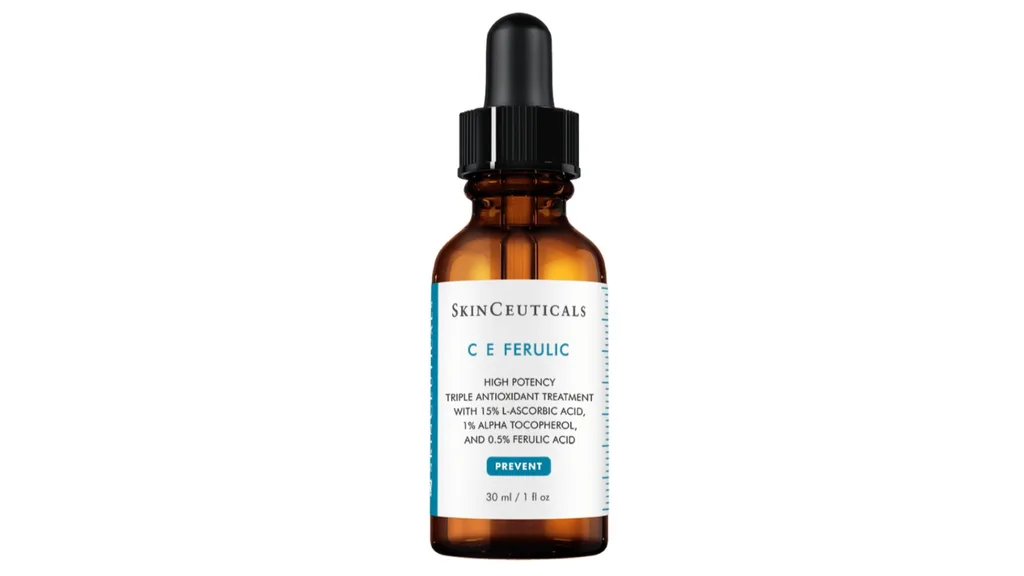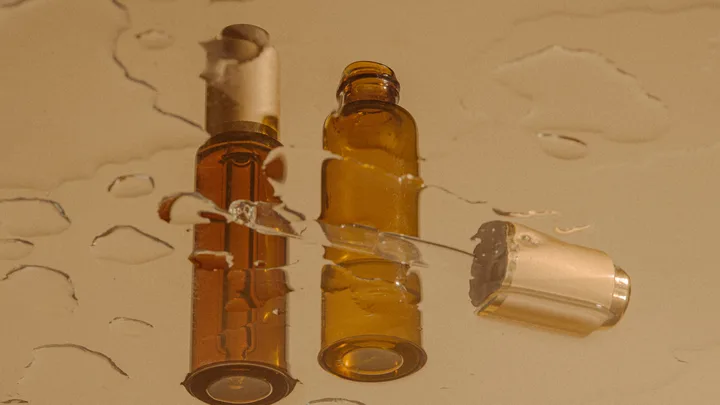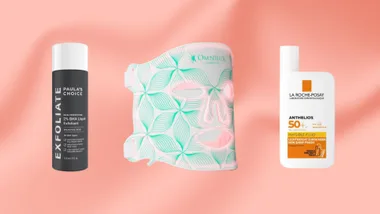We’ve all been in the predicament where our skincare products run out at the same time. The jar of moisturiser is empty, your favourite serum is reaching the end, and even your eye cream is running dry.
It feels like it will cost a small fortune to restock everything.
The good news is, it doesn’t have to be that way. Experts advise that there are ways we can save in our skincare routine. “Skincare doesn’t have to be expensive to be effective,” says Dr Ginni Mansberg, co-founder and Medical Director of science-based cosmeceutical skincare brand, Evidence Skincare (ESK). “There are areas where you can cut costs without sacrificing results.”
So, what do we make the effort to invest our hard-earned money on? A luxurious night cream, a great cleanser?
“Bottom line? Prioritise Vitamin A (retinal), daily sunscreen and antioxidants — and save your money on cleansers and products that don’t deliver long-term benefits,” Ginni advises.
So, let’s break down where to save or splurge on your skincare.
Skincare products to splurge on:

Retinal
You’d be forgiven for being confused about the difference between retinol and retinal. While they sound similar — and are both derivatives of Vitamin A — they will offer slightly different results.
“As we age, we make less collagen, elastin and hyaluronic acid,” explains Dr Shreya Andric, Principal Consultant Dermatologist at Northern Sydney Dermatology and Laser. “What we do make is of poorer quality. Our skin cell turnover also slows down with age. These changes result in skin that is more dull with more fine lines, wrinkles, pigmented spots and broken capillaries.”
To combat this, we often turn to powerful anti-ageing ingredients such as retinoids. Retinal (Retinaldehyde) is the oxidised form of retinol, and is beneficial for improving signs of photoaging.
“This is the most powerful over-the-counter form of Vitamin A, with research showing it outperforms retinol in improving fine lines, wrinkles, pigmentation, and skin texture,” Dr Ginni says. “Unlike retinol, which requires multiple conversion steps in the skin, retinal works faster and is more effective as well as super gentle.”
There is a range of retinal products around, starting at roughly $80 for Facetheory Retinal Supreme MultiCream (pictured above) or Go-To Very Amazing Retinal.
Rather than diving in headfirst to the highest strength retinal you can find, it is best to start on a lower percentage in order to allow your skin to adjust.

Antioxidants
Both Dr Ginni and Dr Shreya also recommend investing in antioxidants such as Vitamin C. Antioxidants are powerful protectors of the skin and aim to reduce the damage that free radicals cause.
“A well-formulated Vitamin C (L-ascorbic acid) or niacinamide serum helps fight free radical damage, even out skin tone, and boost collagen,” Dr Ginni tells us.
However, as Dr Shreya explains, stable Vitamin C can often err on the more expensive side. “You want to make sure that the preparation you are using is very stable, and often these products are more expensive.”
The stability of Vitamin C is important, as the less stable versions are likely to diminish in quality when exposed to water, air, heat or light. The more stable the Vitamin C, the more likely it is to work effectively.
“Vitamin C at 10 to 20 per cent can be worth the investment — when well-formulated and stabilised, it brightens skin, supports collagen, and reduces pigmentation. However, if irritation is a concern, niacinamide is a great alternative,” Dr Ginni advises.
The SkinCeuticals C E Ferulic serum offers 15 per cent Vitamin C, while the Dr Naomi C Bright Power Vitamin C Serum offers a slightly lower 10 per cent if you want to start with a slightly more gentle formulation.

Treatments
We know that facials give you an instant boost and leave your skin feeling younger, smoother and brighter. However, there are many more benefits associated with splurging on a facial treatment every now and again.
Renowned integrated facialist April Brodie says that facials “offer both immediate and long-term benefits, particularly for aging skin”. Some of the most effective techniques, according to her, are:
- Facial Massage: Which April says “improves blood circulation, promoting a natural glow and smoother texture”.
- Lymphatic Drainage: Which can, according to April, help to reduce puffiness in skin for a “more refreshed appearance”.
- Muscle Relaxation: Which promises, as April says, to relieve “tension in facial muscles, which can naturally minimise the appearance of fine lines and wrinkles”.
- Advanced Treatments: April advises “incorporating technologies like LED therapy, microcurrents, and specialised serums, these treatments target specific concerns of aging skin.”
While there certainly are facial treatments you can do at home, in-salon treatments are able to target the skin on a deeper level.
“Facials are essential for aging skin, as they provide targeted treatments to address common concerns such as hydration, exfoliation, and rejuvenation,” advises April. “Moreover, they provide professional care, ensuring that emerging skin issues are addressed promptly. Facials are also a wonderful opportunity to relax, reducing stress.”
Targeted and intensive treatments like April’s Golki Fusion promise to lift skin, using a combination of eastern and western methodologies. However, if you’re looking for a treatment with customisable options and add-ons, try Endota Spa, who have locations across Australia.

Sunscreen
There are a lot of sunscreen myths around, but one thing is true: sunscreen is absolutely necessary.
“Daily sunscreen is the single best anti-aging and skin-protecting product you can use. It prevents sun damage, pigmentation, and premature aging,” Dr Ginni tells us.
While yes, you should absolutely be wearing sunscreen every day (which is an investment in its own right), you don’t necessarily have to spend a fortune.
“While daily sunscreen is essential, you don’t need a luxury formula. Affordable, broad-spectrum sunscreens with zinc oxide offer great protection but low irritation. The key is finding one you’re happy to wear every day,” advises Dr Ginni.
Cancer Council offer lightweight formulas such as the Vitamin C Fluid and Hydrating Serum Sunscreen — both easily accessible at your local supermarket or pharmacy.
Always read the label and follow directions for use. Sunscreen is only one component of sun protection. Reapply every two hours and avoid prolonged sun exposure.
When to save on skincare

Cleanser
While there are many products that you can spend your hard-earned money on, some simply don’t require you to spend a fortune. Cleansers fall into that category.
“I will often advise patients who are more budget conscious to save on their cleansers and moisturisers but to invest in their active ingredients,” Dr Shreya suggests.
April, who introduces her clients to in-depth cleansing techniques, advises that “a cleanser should enhance your end goal — if you want nourishment, it should be nourishing. If you need hydration, it should lock in moisture.”
That being said, “there’s no need to splurge on fancy cleansers since they stay on your skin for less than a minute. Just look for a low pH formula (under 5.5) to maintain your skin barrier,” Dr Ginni recommends.
The Laneige Water Bank Gentle Gel Cleanser has a pH of five, while Cetaphil’s Gentle Skin Cleanser offers a gentle, hydrating (and pH-friendly) option for those with sensitive skin.

Face masks and mists
Face masks and mists offer a nice little treat to the skin every now and again, but are certainly not a product you need to be splurging on.
Dr Ginni agrees, telling us that “these often feel nice but don’t deliver long-term skin benefits, so they’re more of a luxury than a necessity.”
The great thing about face masks and mists is that they offer the skin a nice refresh, and you can usually find one to suit your skin needs. Soothing, brightening, hydrating… You name it!
However, you can usually pick up a sheet mask for around $10 or less. Take the Innisfree sheet masks, for example, which sit at a very affordable $4.



